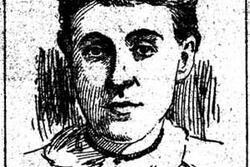Ray Frank, A Complex Figure: Let’s Talk about Honesty and Self Care
In March, a piece of mine entitled, “L’dor Vador: Like Ray Frank, Paving the Way for Progress,” went up on the Jewish Women’s Archive website. In this blog post, I outlined the work of Ray Frank, the first woman to speak on the pulpit in a synagogue, and made clear that she did not become the first woman rabbi. While I am proud of this piece’s message about the importance of self-care, two parts of my March blog post trouble me: 1) I said that people should only set “realistic” goals in their activism, and 2) I implied that Frank was an advocate for women’s rights.
The first issue with my blog post is that it inaccurately represents my intrinsic views. I’ve always felt that changing the whole world can start with just one passionate person. But somewhere along the line, I started to think that we must be realistic in our activism, and that reaching for the stars isn’t worth it. I let myself be influenced so deeply by other people’s ideologies that I lost my own along the way. But I slowly reconnected with my previous ideas on the matter, and saw that some of what I wrote for that March blog post was not a true reflection of who I am or what I believe. I believe that we are only limited by our own imaginations.
It’s important to acknowledge that at times, movements need full force. They cannot afford to wait for the next generation to continue their work. But it is also important to remember that tikkun olam, repairing the world, includes you. You are part of the world. So if repairing the world right now means repairing yourself, that’s okay.
I also misconstrued what Ray Frank stood for in my post; I implied that Frank was an advocate for women’s rights. In fact, she spoke out against women’s suffrage and believed that a married woman should not work outside the home.
My first instinct was to ask the Jewish Women’s Archive to take the post down, but after talking with Sarah, JWA’s Program Manager, I decided that it would be much more powerful to write a new post about how I’ve learned and grown from the experience.
I’ve discovered how essential honesty is in writing. Honesty with oneself and with the reader. I already knew that it’s important to be honest when publishing writing; of course it is. No good comes from lying to people. But when it came to making a deadline, trying to be impressive, and getting things done, I cut corners. I wasn’t honest about Ray Frank. I used her to push my agenda without including all the facts.
I also wasn’t honest about how I view the world. I neglected to do the introspective work that was necessary before posting. And the effects? Guilt. Embarrassment. The fact that this misleading blog post exists for the world to see.
But I would rather learn this lesson now than in my adult life. I would rather grow from this sort of mistake with the support system offered by the Rising Voices Fellows, alumnae, and staff. People, including myself, deserve better than an unfinished narrative.
Here’s my addendum to my blog post about Ray Frank:
Ray Frank was the first woman to speak on the pulpit in a synagogue, but she never became a rabbi. It’s unclear how supportive she was of the movement to put women in the rabbinate, as she is on record giving opposing opinions. At the Jewish Women’s congress, she said, “All in all, [women] have in the past earned the right to the pulpit.... [A woman] may be ordained rabbi or be the president of a congregation—she is entirely able to fill both offices.” However, she also asserted, “I do not even aspire to the office of rabbi, because being a woman I could never be one; that is thoroughly masculine.”
This lack of clarity in Frank’s position about woman rabbis leads me to think that either she may not have known herself what was right, or she changed her mind. Maybe she felt that if women were meant to be rabbis, female posterity would pick up where she left off, filling the rabbinate with women. Or maybe she felt that women were capable of becoming rabbis, but she personally didn’t feel comfortable with a position she saw as so masculine. We don’t know. Frank is a Jewish feminist icon in that she inspires Jewish feminists today as a trailblazer on the pulpit, but she was not a feminist; she was a self-appointed opponent of the women’s rights movement.
For this reason, Ray Frank plays a complicated role in modern Jewish feminism. She showed women they could speak on the pulpit. No matter her personal views on women’s rights, she cracked the glass ceiling. That is iconic from any angle. Her seeming condemnation of feminist ideology does not take away from that, even if it may disallow us from endorsing her in her entirety. Plus, whether she intended to or not, her story shows l’dor vador in action. She opened the path to ordination for female rabbis by preaching on the bima. She didn’t finish the trek; those who came after her did. Frank did what was right for her, and change still happened.
Okay, that felt good. I know Lizzo says that truth hurts, but this truth brought redemption.
(Lizzo isn’t wrong, though. She’s never wrong).
This piece was written as part of JWA’s Rising Voices Fellowship.






